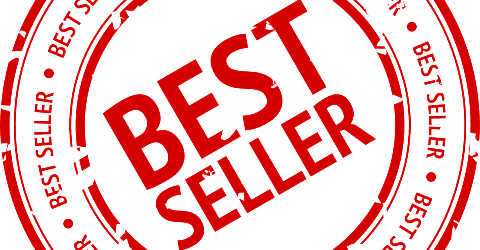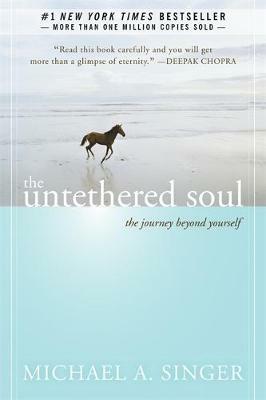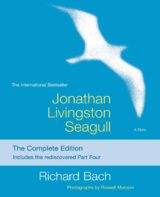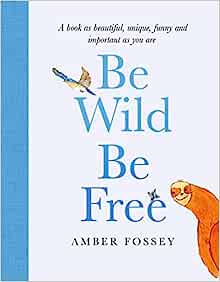Let’s be honest from the outset; the need to write to fulfil our creative need is a powerful reason to keep writing, publishing, then writing again; but what we all really want to some degree or another, is to write that elusive bestseller that will push our name onto the list of Kindle superstars.
So how likely is that goal? Well statistically, not very; and if you do make it, it will probably take you between five to ten years, so you’d better be in this for the long haul or you might as well go and do something else. Here’s the problem simplified: the market is saturated. It doesn’t matter how amazing your written masterpiece is, people can’t find it amongst the dross; and believe me, there is plenty of dross. The only way that you can move the needle when it comes to book sales is visibility, and the only way to get visibility is to market the hell out of your work, but therein lies another fundamental problem for many authors; we are just not natural born marketers. Something about the creative process just doesn’t tie in nicely with the practical, no-nonsense business of selling.
So what is the answer? That’s really simple too: become an expert marketer. Yep, there really is no other solution. The chances of your book being found by the Amazon book-buying audience if you do nothing to promote it are tiny. You may think that the quality of your work will shine through the dark landscape of the virtual crap, but unfortunately and unfairly, it won’t. Yes, there are always the lightning strike successes which seem to happen for no apparent reason and defy all the odds, but if you’re hoping that will happen to you, don’t give up your day job based on that dream coming true; life is unfair and so is Kindle publishing.
So just who are some of the movers and shakers who have made Kindle publishing into a successful business? I’m only going to name a few here; there are many more but these are the ones I am most familiar with and provide a good example.
- Sean Platt, Johnny Truant and David Wright – These guys are awesome at writing and marketing. They literally write a book every month and have hundreds of titles to their name, including fiction series and non-fiction. Their business plan is simple: they write, publish, repeat, which is also the title of one of their best-selling books.
- Joanna Penn – Joanna is predominantly a fiction writer but she has also written several books on how to make eBook publishing a profitable business. She has the advantage of being an expert in marketing and openly acknowledges that the key to being a success lies in your ability to market and network.
- Hugh Howey – Oh, how we all want to be Hugh Howey. His overnight success took him ten years but he knew the importance of tenacity and he just kept going in the face of disappointing results. Hugh realised that no matter how long it takes, you just need to keep at it, even if it takes a decade. How many of us truly want to face the fact that if we are going to make an impression, it may take many years of this anguished process?
- Tom Corson-Knowles – This guy is basically a marketing expert who happens to write. His business plan is all about the brand and the product, and that’s where he differs from a lot of writers because he sees his books as his products to sell. It’s a hard transition to make; the image we have of ourselves as writers is far removed from the hard-nosed business man or woman we need to become in order to sell a few copies of our art, but that’s what Tom has done and he’s been very astute about it; in fact, he lives in Hawaii off the proceeds. He is basically a Kindle genius.
- Steve Scott – Another astute business man who also knows how to write. His non-fiction books have swamped the Kindle platform with really useful ‘How to’ guides on everything from writing to marketing to developing good life habits. He quite rightly dominates many of his subject categories.
So back to statistics: nobody really likes them unless they work in your favour so I’m about to really p*ss you off. As an indie author, you are in the group that earns quite a large slice of the author earnings pie, anything from 20% right up to 40% depending on which part of the year you analyse. In fact, by the end of 2014, Indie authors as a group were earning nearly as much as the top five biggest sellers; that’s almost half of the pie. Great, right? But there’s the problem: give half a pie to five top authors and they get a nice chunk; now spread the rest of the pie between hundreds of thousands of struggling writers and you can see why we’re all so hungry. Your book needs to sell at least 500 to 1000 copies in a very short space of time if it is to appear on Amazon’s radar; that’s difficult enough for an established author, let alone a struggling newbie.
So to summarise, there are three ways to really make a killing in this eBook industry:
- Become a marketing expert
- Write many books over many years
- Get lucky
So there you have it; the chance of becoming an Amazon best seller is at best, unlikely. Now that you know this, here’s what you do: if you love writing, keep going; tenacity will get you far; but if you are looking for financial success and a thriving business, you need to learn to sell your darlings rather than murder them. Thank you Arthur Quiller-Couch for the phrase.



